Hi, it’s been a stressful week for the world. Before I get to today’s post, I want to acknowledge this and share 2 thoughts for challenging times.
Do what you’re good at. This comes from the environmental activist and mountaineer Rick Ridgeway, from a talk he gave in Santa Fe a couple of years ago. During the Q + A, I asked him what young people can do to offset the mounting climate crisis. P was with me and I think we were both hoping he’d validate the things we were already doing—riding bikes to school, recycling, etc. Instead, he said, “Do what you’re good at.” I remember feeling disappointed, like he’d punted a sincere question with a generic answer. Only later did I realize the simple genius of his words. Not everyone will march at protests or organize rallies. Some of us will write stories. Some of us will care for elders or animals; some will look after the less fortunate in our communities. This is all important work. Ask yourself honestly: how you can best serve? It might be different from your partner’s way, your brother’s, or your best friend’s. That’s OK. It’s good, even. We need everyone’s skills.
A corollary: Yesterday, while riding my bike, I listened to a podcast from the Zen teacher Norman Fischer, who said—and I’m paraphrasing a little: “to practice Zen is in fact a profound political act for the good. We don't practice for ourselves. We really are doing it to benefit all beings and ourselves.” He was referring to a recent decision whether to cancel a meditation session because it conflicted with a political protest. No, it was decided, the meditation would go on as scheduled. Those who wished to attend the protest could do so, while those who wished to sit could sit. One is not better than the other. They are both expressions of engagement and activism. When we act for the benefit of others, it doesn’t matter what form it takes. It’s the spirit of compassion that counts.
This is just another way of saying what Ridgeway said: Do what moves you—what feels true and natural. Put your gift into the world.
On that note, last weekend I was invited to tell a story at the annual meeting of a nonprofit that supports the Santa Fe Public Library. I could tell any story I wanted as long as it was about libraries and books, the organizer told me. I’ve loved both libraries and books my whole life, so of course I said yes.
The story I told was the story of three books. Three books that defined and shaped my early years as a reader and set me on a path of becoming a writer.
Naturally, it’s a grossly incomplete story. There have been so many books—far too many to count— that have influenced my writing and reading life.
Like most kids growing up in the 1970s and 80s, libraries featured prominently in my young life. They were more than a place to check out books. They represented freedom; they were a safe place kids could go alone. Unlike now, it was normal to see kids by themselves in the world, especially in libraries. Not just at story hour, but sitting and reading alone at tables, lying on their stomachs on the shag rug in the children’s section, or standing tippy-toe on a step-stool to reach the card catalogue.
My sister and I fit right in.
We were the latchkey kids of two loving but divorced parents, in Washington D.C., in the mid 70s. Starting when I was in kindergarten, my sister and I walked to and from school alone, across three small streets and one busy one, Military Road. Sometimes we stopped at the market on the way home from school to buy Big Buddy gum sticks or went to the library and checked out books.
When I think of my childhood, that distant epoch before internet and cell phones, answering machines and email, I think of books. They, along with my body, were time-traveling tools. They transported me anywhere I wanted to go in my imagination. Books were a gateway into other worlds, other lives.
My parents read to us every night, my father especially, when he lived at home, or after, on nights he came over to tuck us in. One of our favorite books was Time of Wonder, in which a family on an island in Maine is preparing for a hurricane. It read like the narrative of my childhood. Maybe because of that book, the first trip my father took us on by himself was to Penobscot Bay, where Time of Wonder is set. The descriptions of swimming and looking for crabs by flashlight and going by boat for supplies were so vivid and reminded me of the island in Canada where we went with our mother. On our island, too, we lived by the weather and the wind, the water and sky.
One line in particular has stuck with me all these years. I read it to my girls when they were little, and I always got choked up. It’s about the two sisters getting ready to leave their island to go home again, “to reset the clocks from the rise and fall of the tides to the come and go of the school bus,” the author Robert McCloskey wrote. “Take a farewell look at the waves and sky. Take a farewell sniff of the sea. A little bit sad about the place you are leaving. A little bit glad about the place you are going.”
This scene captures exactly what it felt like to live with longing, between two places, between two parents, happy and sad at the same time. It taught me how to hold both feelings, two contradictory emotions, at once.
In the spring of 1978, when I was six, we moved to New Jersey. Everything happened so fast, I didn’t have time to clean out my first-grade cubby or return my library books. Well, maybe there was time. But whether out of protest or embarrassment, I didn’t. I kept my favorite book and took it with me to New Jersey.
It was All-of-a-Kind Family about five sisters growing up in the Lower East Side of Manhattan in the 1920s. The girls were blonde or wore ribbons and pinafores and the baby had ringlets. They looked after each other in the way that children did back then. They loved books and libraries as much as I did. Ironically, the first chapter opens on a Friday, “library day,” the girls’ favorite day of the week, but the middle sister is remorseful: She’s lost a book. She’ll have to pay for it with her own money.
I put the book on my bookshelf in my new room and felt ashamed every time I saw it. I had stolen it. I still have it.
When I went to find it in my office last week, the due date slip from the Chevy Chase Public Library was still in the back, stamped 6 April 1978. We moved to New Jersey ten days later. Stamped on the inside covers front and back, rather menacingly in all caps, was PROPERTY OF DISTRICT OF COLUMBIA. And the ominous warning: Theft or mutilation is punishable by law.” The cover, though, paints a happier picture. The five sisters are dancing gleefully out of the library with their borrowed books. That’s how I felt about libraries too: safe and full of possibility. Maybe if I kept the book, I would keep that feeling.
In New Jersey, we got a new library, the Summit Public Library. I can still picture the tall wooden card catalogs in a block in the middle of the main room. The smell of manila card-stock when you opened the tiny drawers, the crinkly sound the plastic sleeves between your fingers, sniffing the sweet musty pages inside, so strong and familiar I can still almost taste them.
The books I loved then were still about plucky, spunky girls—sisters. Ramona and Beezus, Laura and Mary, Otherwise Known as Sheila the Great. There were boys, too— the punky Fudge—but only in small doses. My favorite and most formative book was Harriet the Spy.
Harriet was 11 like me. I imitated her, collecting receipts and scraps of paper from the sidewalk and neighborhood, sometimes on foot, sometimes by bike—usually alone. Like Harriet, I was looking for clues to solve mysteries, some made up and others true. How had I ended up with a new family in New Jersey? Maybe if I found the evidence I would crack the case.
As a teenager, I got hooked on Agatha Christie and Hercule Poirot mysteries, and Stephen King. I loved trying to figure out the ending before I got there, solving them as I was still trying solve my own story.
I am a writer today because of the books I read and those that were read to me as a child, because of the circumstances of life itself. Authors accompanied me on every leg of my journey: Agatha Christie when I was a teenager; Thoreau and Walt Whitman as a literature major in college and, when I moved West, Pam Houston and Wallace Stegner.
Books kept me company, inspired me to write my own stories, and enabled me travel far and wide in my body and my imagination. These are practices I still use to this day. Reading is writing. It’s central to my writing process—to see what stories are out there and to imagine new ones.
After my talk, a woman told me she’d gone to the same elementary school in Washington that I had. She knew the market where my sister and I bought gum. Another told me how much she’d loved the stair-step girls; as one of four sisters, she was one. One woman jokingly told me that I now owed thousands in fines. The head Santa Fe librarian said she was speaking for librarians everywhere when she absolved me of my crime.
Maybe someday I’ll call Chevy Chase library and confess. I’ll send them this story and a copy of each of my books, and thank them for the loan that changed my life. It would be a fitting end to this story, though of course it doesn’t end, not really. As long as there are books, our stories never end, they just keep going, overlapping together.
So here’s my invitation: What are your 3 books? Which ones were most important to you? Don’t overthink it, just go with the first few that spring to mind. There will always be more! A lifetime’s worth. And that’s some good news for dark times.
with love, katie
Only a few spots remain at Mountain Flow Camp, September 5-8 at High Camp Hut outside Telluride, CO. Hike in to a comfortable alpine lodge at 11,000 feet in the San Juan Mountains for 4 days of writing, wandering, forest dreaming, yoga, conversation friendship, meditation and so much more. This is a transformative, magical weekend in the mountains that will fill your cup with inspiration, exploration, connection, and joy. All inclusive doubles, $2600 per person. Register with a friend + you’ll both receive $100 off. Reach out if you’d like to learn more on a call or over email!
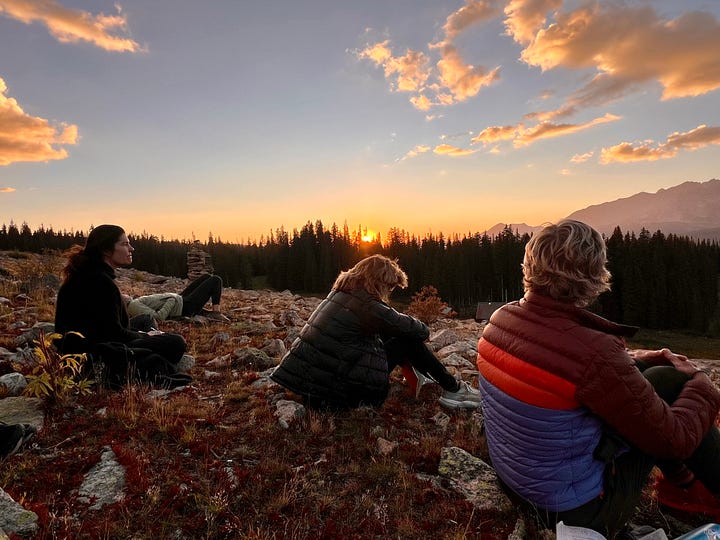
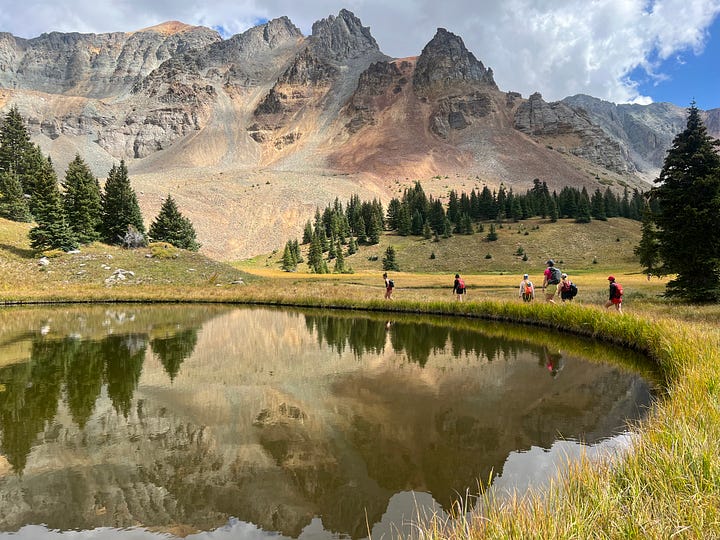
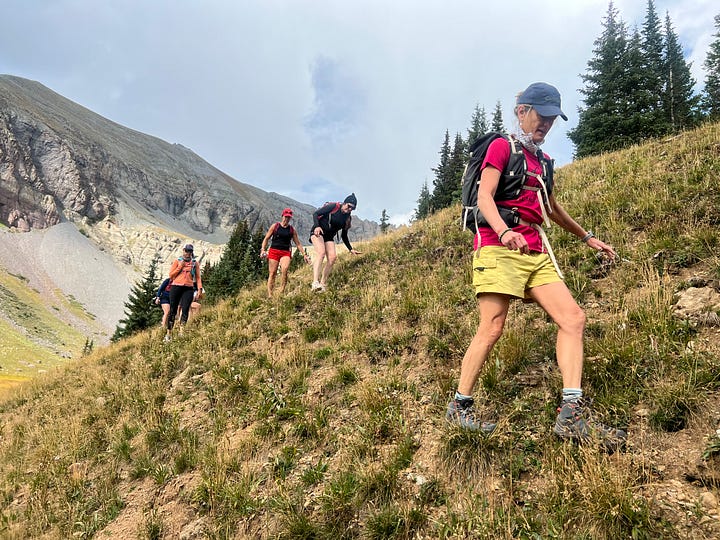
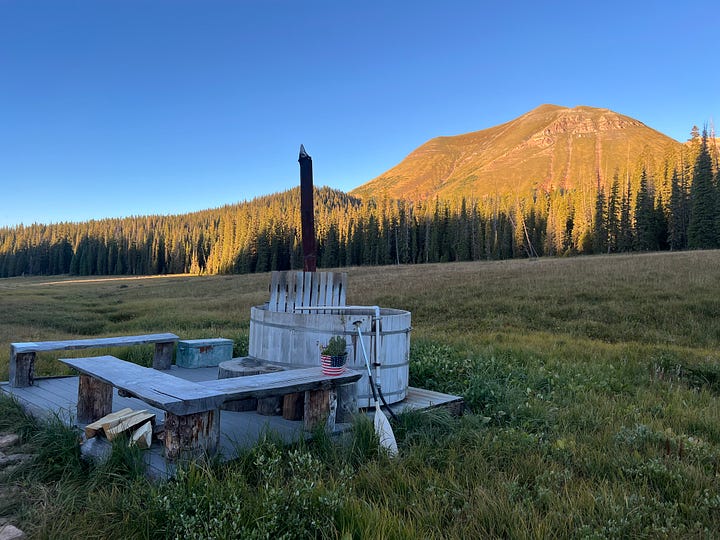


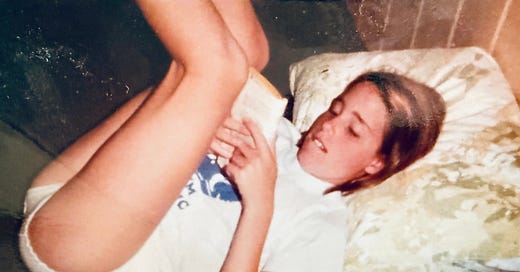



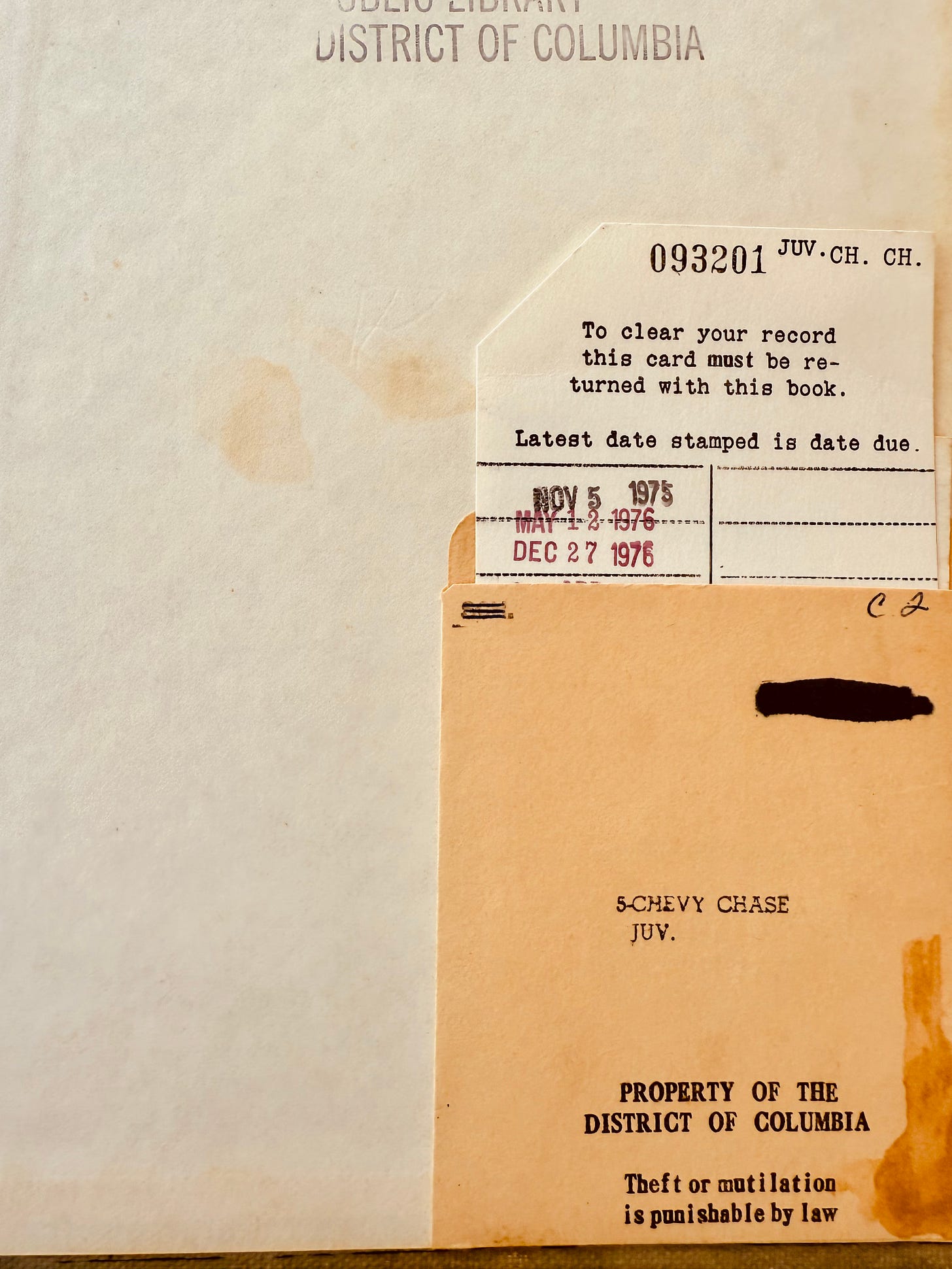
Any of the Hardy Boys books. Devoured them.
Jane Eyre, Anne of Green Gables and The Outsiders.